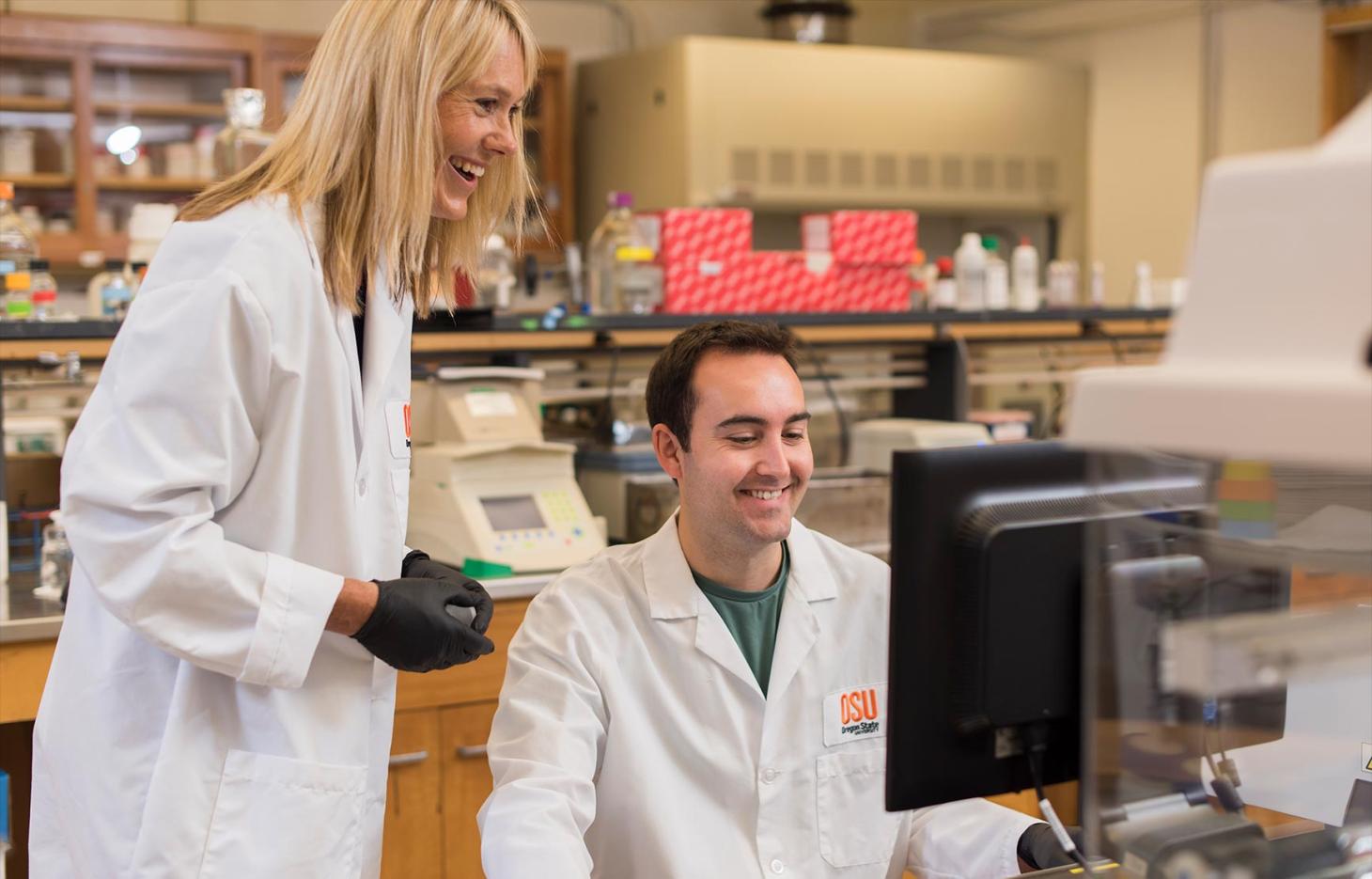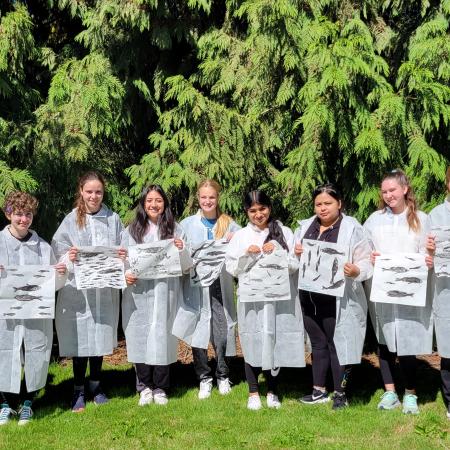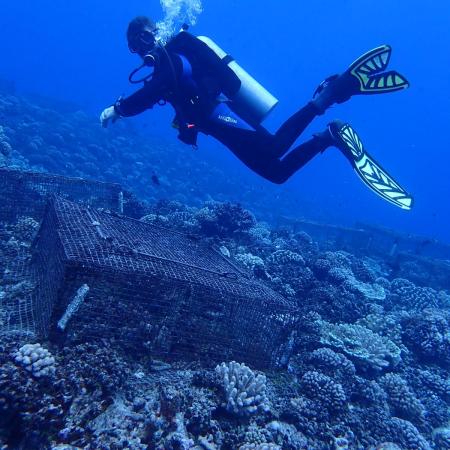Scholarships
Debbie S. Bellinghausen Microbiology Student Support Fund
This fund provides an annual award to undergraduate or graduate students enrolled in microbiology. Student support can include, but is not limited to, travel for professional development, collaborative research projects, and scholarship support.
Eugene W. Seitz Scholarship
This scholarship is to recognize Dr. Seitz’s industrial achievements and leadership in pioneering the commercial manufacture of many and various microbial flavor building blocks. It also recognizes his graduate studies under Dr. William E. Sandine and Dr. Edgar A. Day, who jointly chaired his graduate committee. Dr. Day, a world-famous flavor scientist, became the V.P. Director of Flavor R&D at International Flavors and Fragrances, Inc., and supported Dr. Seitz in becoming the Director of Biological Flavor Technology at IFF.
Margaret & Charles Black Scholarship
The Margaret and Charles Black Scholarship Fund provides an annual scholarship award to an Oregon State University graduate student in microbiology who has demonstrated excellence in their graduate studies. Nominees must be Microbiology graduate students with a distinguished record of academic performance.
Dick & Toshi Morita Scholarship
Nominees must be Microbiology graduate students. Recipients must meet the following criteria: graduate student; microbiology major/focus; and demonstrates financial need. The nomination should document the student's academic record and other scholarly accomplishments. The application should include at least two letters of recommendation from faculty.
Sheila van Zandt Scholarship
Application due March 1, 2025. Apply here.
The intent of this award is to promote collaboration between a graduate student and undergraduate student. Application is by a graduate/undergraduate pair separate from other Department of Microbiology scholarships.
- This scholarship is for an undergraduate/graduate student pair with one proposal submitted between the two of them.
- The award is $1800 (with a requirement of matching funds from the lab).
- The students give a presentation at the spring symposium (or an acceptable alternative).
Harriet M. Winton Scholarship
This scholarship was established by Mrs. Harriet Winton in appreciation to Dr. J.L. Fryer for assisting in graduating her son, Dr. James R. Winton, in the study of Diseases of Pacific Salmon from the Department of Microbiology. This award will go to a microbiology graduate student in the study of diseases of fish. Financial need will be considered.
Faculty-nominated fellowships
John L. Fryer Fellowship
Nominations due January 20, 2025
The friends and family of John L. Fryer have established the John L. Fryer Fellowship Fund to honor and recognize Dr. Fryer’s scholarship and the years he dedicated to the study of infectious diseases of fish. The purpose of the John L. Fryer Fellowship will be to provide support to graduate student(s) at OSU involved in research on the infectious diseases of fish (finfish or shellfish) -- includes stipend & tuition.
Oregon Department of Fish & Wildlife Fish Health Graduate Research Fellowship
ODFW submission deadline depending on availability
Provides graduate level training on a project that is relevant to the health of non-aquarium fish. This fellowship will support a graduate student conducting research towards an MS or Ph.D. in Microbiology or under the mentorship of a Microbiology professor at Oregon State University, with the intention of training towards and encouraging a career in fish health studies relevant to the wild fish popularities of Oregon.
Middlekauf Outstanding Graduate Teaching and Service in Microbiology
Nominations due April 23, 2025
The Mark H. Middlekauf Memorial Scholarship was established at OSU to aid microbiology students. Funds came from an endowment created by a bequest from the estate of Ruth M. Tyson. The scholarship honors Tyson’s brother, an OSU graduate in agriculture who died in 1918 while serving in the Army.
Nominees must be Microbiology graduate students with a distinguished record of teaching and service. Faculty and instructors may nominate students for this award. The nomination letter should document the candidate's outstanding teaching ability and exceptional dedication. Course evaluations may be included as additional support for the nominee.
The Outstanding Graduate Teaching Assistant will receive a cash award.
Middlekauf Outstanding Graduate Achievement in Microbiology
Nominations due April 23, 2025
The Mark H. Middlekauf Memorial Scholarship was established at OSU to aid microbiology students. Funds came from an endowment created by a bequest from the estate of Ruth M. Tyson. The scholarship honors Tyson’s brother, an OSU graduate in agriculture who died in 1918 while serving in the Army.
Nominees must be Microbiology graduate students with a distinguished record of academic performance, scholarship, and research. The nomination letter should include a list of publications, accepted manuscripts, presentations at scientific meetings, awards, and academic record. The nomination should include one additional letter of recommendation.
The Outstanding Graduate Student will receive a cash award and give a departmental seminar. A reception will be held in honor of the recipient.
Nicholas L. Tartar Graduate Student Fellowship
Submission deadline, January 20, 2025
Established by N.R. Tartar, M.D., a long-time friend of the early faculty in Microbiology. Awards are to go to qualified graduate students that meet residency requirements and are majors in the Department of Microbiology.




